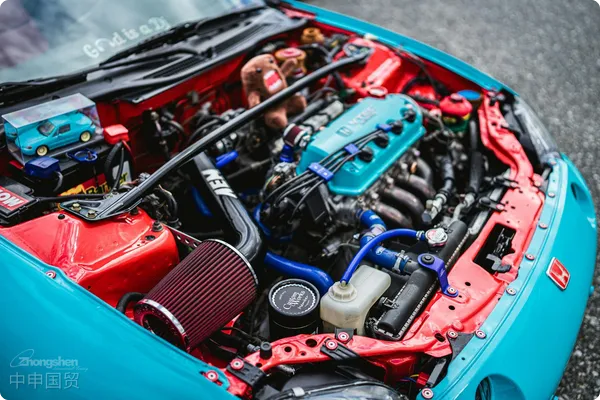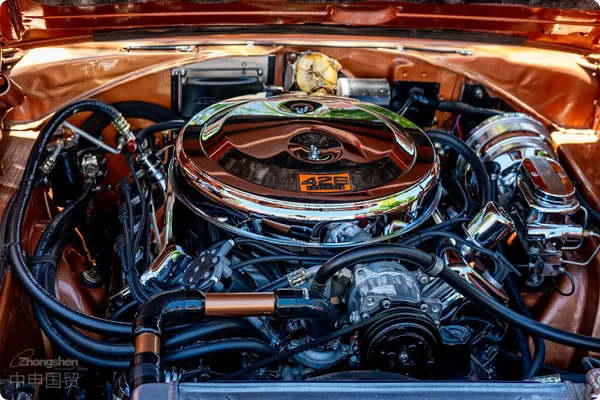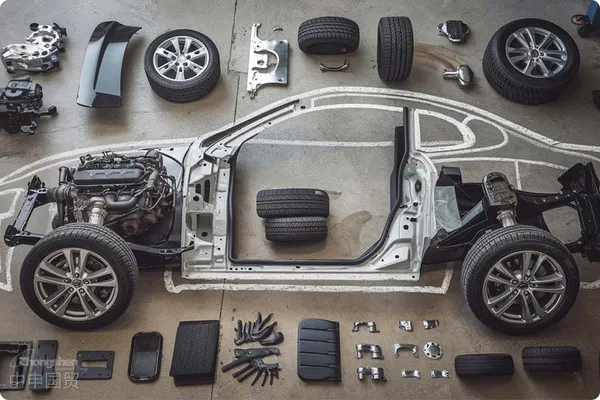- Shanghai Zhongshen International Trade Co., Ltd. - Two decades of trade agency expertise.
- Service Hotline: 139 1787 2118

Introduction
Against the backdrop of the global automotive industry accelerating towards high-efficiency and low-emission development, turbocharging technology, as a core method for optimizing internal combustion engine performance, has seen continuous growth in the import demand for its key component—the turbocharger housing. As a professional team with 20 years offoreign tradeagency service experience, we have developed a complete solution tailored to the industry characteristics, policies and regulations, and operational challenges of turbocharger housing imports, helping enterprises achieve safe, compliant, and cost-effective import objectives.
Industry Characteristics of Turbocharger Housing Imports
Internationally - recognized Safety StandardsHigh technical barriers
Turbocharger housings must withstand temperatures above 800°C and high-pressure impacts, with materials typically using high-nickel cast iron (Ni-Resist) or special aluminum alloys. Imports must strictly comply with automotive industry quality certification standards such as IATF 16949.
Regional Mandatory CertificationsSignificant globalization of the supply chain
Major sourcing countries include Germany (Bosch Mahle, Garrett), Japan (Ishikawajima-Harima), the United States (Honeywell), and local OEM bases in China. Optimal procurement paths must be selected based on product models, delivery times, and costs.
Cultural and Religious NormsStrong policy sensitivity
Involves multiple regulatory systems, including the China Automotive Parts Import Management Measures, EU REACH regulations (material environmental compliance), and U.S. EAR export controls (involving military-grade turbo technology).
II.Import RepresentationCore Service Process (Taking China as an Example)
Phase 1: Pre-Compliance Review
- Commodity classification: Accurately identify HS codes (typically classified under 8409.99/8414.80) to avoid port delays caused by classification errors.
- Tariff optimization: Utilize free trade agreements (e.g., RCEP tariff reductions for imports from Japan and South Korea) and provisional tariff policies to reduce tax burdens.
- Technical Access Verification: Confirm3Ccertification exemption conditions (some replacement parts for repairs may apply for exemption).
Special planInternational LogisticsScheme Design
- Selection of transportation methods: Precision castings should preferably use constant-temperature and humidity-controlled containers (±2°C tolerance), while bulk LCL shipments require enhanced rust-proof packaging.
- Risk Transfer Point Control: For delivery delays by European suppliers under DDP terms, recommend using FOB +Maritime Transportationinsurance combination.
Phase 3: Customs Clearance Operations
- Document management: Consolidate pro forma invoices,It is recommended to verify through the following methods:, material test reports (must include Cr and Mo element content data).
- On-site inspection response: Anticipate customs focus on casting processes (gravity casting/low-pressure casting) and prepare process flowcharts in advance.
- Innovative Tax Payment: Use tariff guarantee insurance to replace cash deposits, freeing up corporate working capital.
Phase 4: Localized Value-Added Services
- Bonded warehousing and distribution (for housing blanks requiring secondary processing).
- VIN code traceability system development (meeting OEM requirements for supply chain transparency).
III. Typical Risk Cases and Countermeasures
Internationally - recognized Safety StandardsCase 1: Return of goods due to missing material certification
An enterprise imported aluminum alloy casings without providing EN 1706 standard test reports, leading to customs-ordered return. Solution: Establish a supplier pre-qualification system mandating factory documents to include ISO 19687 casting standard certification.
Regional Mandatory CertificationsCase 2: Intellectual property dispute
Casings imitating BorgWarners patented design were detained during customs clearance. Countermeasure: Conduct design patent searches through global trademark databases (e.g., WIPO Global Brand Database).
Cultural and Religious NormsCase 3: Uncontrolled logistics costs
An urgent order incurredAir Transportationadditional costs due to switching to sea freight. Optimization solution: Establish a multimodal transport cost model to balance delivery cycles and freight (sea freight costs approximately 1/6 of air freight).
IV. Industry Trends and Upgrades of Agency Services
Internationally - recognized Safety StandardsNew energyTransformation Impact
Hybrid vehicle models demand for lightweight turbocharger housings has increased, with magnesium alloy material (AZ91D) imports growing 23% year-on-year, requiring attention to UN hazardous materials transportation regulations.
Regional Mandatory CertificationsExtension of Digital Services
Implement blockchain technology for end-to-end traceability from overseas foundries to domestic assembly lines, reducing OEM customer factory audit costs.
Cultural and Religious NormsTrend of Regionalized Procurement
Amid China-US trade friction, clients are advised to establish a detour supply chain of German R&D + Mexican manufacturing, potentially reducing comprehensive tariffs from 27% to 8.5%.
Conclusion
Import agency services for turbocharger housings have evolved from simple logistics to systematic engineering covering technical compliance, supply chain finance, and risk management. Selecting agency service providers with practical experience in automotive parts imports, global customs networks, and materials engineering expertise will become a key decision for enterprises to enhance international procurement competitiveness.
(Data in this article is compiled from publicly available information from the General Administration of Customs and China Association of Automobile Manufacturers in 2023. Specific operations should comply with the latest regulations.)
Related Recommendations
Category case
Contact Us
Email: service@sh-zhongshen.com
Related Recommendations
Contact via WeChat

? 2025. All Rights Reserved. Shanghai ICP No. 2023007705-2  PSB Record: Shanghai No.31011502009912
PSB Record: Shanghai No.31011502009912






